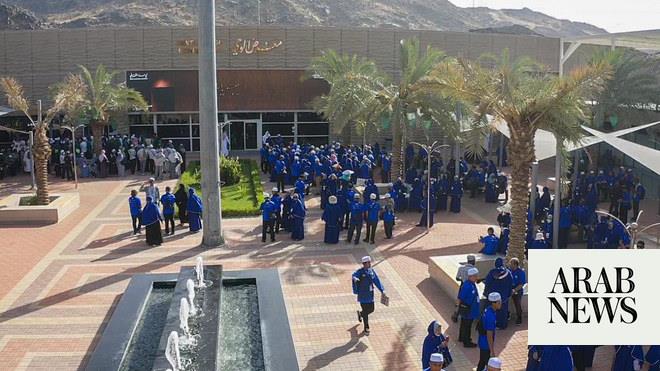
A recent virtual event organized by the Jeddah-based Goodwill Global Initiative (GGI) paid glowing tribute to Sheikh Abdullah Mohyaddin Melibari, a veteran Saudi citizen of Indian origin. Sheikh Abdullah died last Monday in Makkah after leaving a rich legacy of outstanding educational and humanitarian services spanning over six decades. He was also the senior official of Al-Madrasatul Malaibariya, one of the oldest schools in the holy city.
Several prominent Saudis of Indian origin and Indian expatriate leaders commemorated the deceased Sheikh Abdullah, who was popularly known as “Khubba Melibari.” The speakers also drew attention to the historic Saudi–Indian relations, which date back to pre-Islamic period and that scaled at present to greater heights of strategic ties.
It was recalled that Arab traders sailed to Malabar, situated on the southwestern coast of the Indian subcontinent, to buy spices, which were grown only there in the world at that time. These centuries-old bonds can also be seen in Indians’ role in educational uplift of Makkah.
The first regular school in the Arabian Peninsula, namely Madrasatul Saulatiya, was established by Indians in Makkah in the year 1874. The second school in Makkah — Al-Madrasatul Falah — was founded in 1911 by Muhammad Zainal Ali Ridha, a Saudi diamond business tycoon who lived most of his life in Mumbai and died there in 1969.
Indians came and settled down in Makkah 100 years ago or before. They made arduous journey to perform Hajj. Poverty, famine and persecution of the British colonial rulers were among the factors that also led to their migration.
At that time, there were no government schools in Makkah and hence each community established their own school. Most Melibaris, who migrated and settled down in Makkah, did not even have basic education. They worked hard for sustenance. Even in the midst of hardship and suffering, they were very keen to give better education for their children. Melibaris realized that education is the key to success and decided to establish a school of their own.
Nearly a century ago, during the Hijri year 1346, they established an elementary school called Al-Madrasatul Malaibariya. It was built first at Shubaika, which was now part of the expanded Grand Mosque. The school continues to remain as the center of cultural, social and humanitarian activities of Melibaris.
Khubba Melibari served as the senior official of this school. Along with his successors Sheikh Adil Melibari and Jaafar Melibari, he rendered dedicated and selfless services for this institution, which is running currently Qur’an memorization centers in at least a dozen main mosques in Makkah.
The speakers also recalled that Sheikh Khubba was a towering figure among the Melibaris in Makkah. His grandfather first came from Kondotty in the Malappuram district of the southern Indian state of Kerala and settled down in Makkah. Later his father Muhiyaddin Komu Melibari arrived.
The boy Abdullah became an orphan at the age of 13 when his father died. After finishing classes at Al-Falah School and during weekend, he used to do menial jobs to earn money. During Hajj season, he served pilgrims to make both ends meet.
The young Abdullah preferred to serve mostly Hajis from India and learnt Malayalam mainly from them. Khubba Melibari served the Makkah education department for 34 years and retired 11 years ago from King Faisal Intermediate School in Makkah.
He is survived by wife Ayesha and sons — Turki Abdullah, a computer engineer at the General Presidency for the Affairs of the Two Holy Mosques, and Fahd Abdullah, a civil engineer at the Haram presidency, and three daughters —Firdous, Tahani and Ohoud.
Sheikh Khubba was a major center of attraction at “Muziris to Makkah Meet”, the historic first ever interaction of eminent Saudis of Indian origin, organized jointly by the Indian Consulate General and GGI on April 12, 2019.
“Sheikh Khubba was an embodiment of dedicated and selfless services to the Meliberi community as well as to the poor and destitute in the holy city. He was an icon of altruism and humility while serving the poor and worked tirelessly to disseminate the sublime values with spreading the message of the Holy Qur’an among the younger generation,” it was told in the meeting.
GGI President Dr. Ismail Maritheri presided over the session. The speakers of the evening included Dr. Hussain Madavoor, general secretary of All India Islahi Movement; Talal Bakur Melibari, supervisor of Nusratul Masakeen Endowment in Makkah; Abdul Rahman Abdullah Yousuf, chairman of Global Bridge Company; Sheikh Mohammed Saied Malibari, managing director of MOSACO; Jaafar Ali Melibari, supervisor of Al-Madrasatul Malaibariya Makkah; Adil Bin Hamza Melibari, educational advisor to director of Makkah Education and general supervisor of Al-Madrasatul Malaibariya; Sufyan Omar Melibari; Faisal Melibari; Wajdi Melibari; Salman Melibari; Karim Melibari; Eng. Turki Abdullah Melibari and Fahd Abdullah Melibari.
V.P. Muhammad Ali, chairman and managing director of Jeddah National Hospital; Dr. Ahmed Alungal, executive director of Abeer Medical Group; Musafir, Mullaveettil Saleem, GGI Treasurer P.V. Hassan Siddique Babu, Vice President Jaleel Kannamangalam and Secretary Kabeer Kondotty also spoke on the occasion.
GGI General Secretary Hassan Cheruppa welcomed the gathering while Secretary Sadikali Thuvvur proposed the vote of thanks. Sahal Abdurahman Kalambrattil recited a few verses from the Holy Qur’an.
A documentary titled “Bidding Adieu to a Beacon of Knowledge” was presented. The organizers of the event also included Ishaq Poondoli, Noufal Palakkoth, Abdurahman Kalambrattil, Ghafour Kondotty, Ebrahim Shamnad, Abdullahkutty A.M, APA Ghafour, Mansoor Wandoor, P.M. Murthada, Aruvi Mongam, Ashraf Pattathil, and Musthafa Peruvallur.











